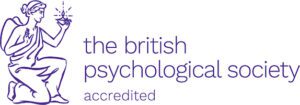Psychology & Criminology BSc (Hons)
UCAS code: P3C5
Explore the complexities of the criminal justice system in our psychology and criminology degree. Understand the relationship between the mind and criminal behaviour. Begin an exciting career in psychology on a degree accredited by the British Psychological Society.
Overview
| Course length: | 3 years full-time |
|---|---|
| Start dates: | September 2024 |
| Location: | Edge Hill University |
| Example offers: | BBB-ABB (A Level) or DDM (BTEC) View full entry criteria |
| Subject(s): | PsychologyCriminology |
| Faculty: | Arts and Sciences |
| Department: | Psychology |

We’ve complemented our psychology degree with the addition of criminology studies. So you can compare and contrast different perspectives in these two fascinating areas. You’ll investigate by asking why. Why do we use substances? And how. How does memory affect our ability to recall a crime?
Our degree is accredited by the British Psychological Society (BPS) and is the perfect first step on your journey to becoming a chartered professional. Psychology puts every aspect of the brain and our behaviour under the microscope – how we learn, interact and use body language. In criminology, you’ll discover the nuances of criminal behaviour through insights into the inner workings of the justice system.
Developing research skills is vital too. We’ll help you explore the latest methodologies. At the same time, you’ll develop career skills in creativity, critical thinking and communication.
Outside the lecture theatre, we encourage you to get involved with our Psychology Society and look out for exciting opportunities to work with our experts on their latest research projects. Your psychology degree will be taught by staff who carry out world-leading research and are experts in their fields.
This course is weighted towards psychology. When you finish, you’ll be eligible for Graduate Basis for Chartered Membership (GBC).

Course features
-
International students can apply
-
Professional accreditation
-
Sandwich year option available
-
Studying abroad option available
What you'll study
In the first year of your BSc Psychology & Criminology degree, you’ll develop the skills needed for applied psychology and we’ll introduce you to elements of behavioural psychology. We’ll develop your skills in data analysis and interpretation that will be essential in the real world. Alongside the main concepts and basic principles of psychology, we’ll unravel criminology, beginning with the criminal justice process then moving onto criminology theory.
Year 2 is grounded in the key psychology strands including developmental, social, cognitive and biological psychology. We’ll also help you become confident in designing, conducting and analysing your own research. We’ll then cover criminological theory and how it applies to modern criminal justice. Learn to challenge mainstream crime theories and delve into different social context examples.
You’ll deepen your understanding of specific areas of psychology and criminology in the final year. You’ll shape your studies with optional modules such as the study of human behaviour, the politics of policing, or imprisonment. Then you’ll draw elements from both subjects together to complete a dissertation and develop your skills in independent study.
Where your course includes optional modules, these are to provide an element of choice within the course curriculum. The availability of optional modules may vary from year to year and will be subject to minimum student numbers being achieved. This means that the availability of specific optional modules cannot be guaranteed. Optional module selection may also be affected by timetabling requirements. Some restrictions on optional module choice or combinations of optional modules may apply.
How you'll study
Our teaching methods vary from traditional style lectures to tutorials, seminars and workshops. There are well-equipped laboratory facilities consisting of a teaching lab, audio visual suite and soundproof cubicles for conducting experiments. We have a wide range of IT facilities, including experiment generation and statistical packages.
How you'll be assessed
Assessment methods include essays, formal examinations, statistical exercises, group research projects, report writing, oral presentations, designing a research proposal and completing a dissertation.
Who will be teaching you
You will be taught by a highly-committed team of research-active, expert tutors whose primary areas of specialism correspond directly with the themes of the modules available across this programme.
The Department of Psychology operates a research internship scheme where you may have the opportunity to volunteer to assist with staff research across a range of exciting projects. Previous projects have focused on subjects including eye movements and memory, alcohol and inhibition, autistic traits, attentional bias to pictures and words, personality and offending behaviour, behaviour change and food awareness, multiple perspective taking, the neural underpinnings of action simulation, and the question of whether emojis reveal true emotions.
Entry criteria
Entry requirements
Typical offer 120-128 UCAS Tariff points, for which no specific subjects are required, plus GCSE English and GCSE Mathematics at Grade C or Grade 4 or above (or equivalent).
Please note, for the purposes of studying psychology, level 2 literacy and numeracy qualifications are not considered as equivalent to GCSE Grade C or Grade 4 in English Language and Mathematics.
Example offers
| Qualification | Requirement |
|---|---|
| A Level | BBB-ABB. |
| BTEC Extended Diploma (or combination of BTEC QCF qualifications) | Distinction, Distinction, Merit (DDM). |
| T Level | Overall grade of Merit. |
| International Baccalaureate (IB) | We are happy to accept IB qualifications which achieve the required number of UCAS Tariff points. |
| Access to Higher Education Diploma | 45 credits at Level 3, for example 24 credits at Distinction and 21 credits at Merit or 30 credits at Distinction and 15 credits at Merit. The required total can be attained from various credit combinations. |
Please note, the above examples may differ from actual offers made. A combination of A Level and BTEC awards may also be accepted.
If you have a minimum of two A Levels (or equivalent), there is no maximum number of qualifications that we will accept UCAS points from. This includes additional qualifications such as Extended Project Qualification (EPQ), AS Levels that haven't been continued to A Level, and General Studies AS or A Level awards.
English language requirements
International students require IELTS 6.0, with a score no lower than 5.5 in each individual component, or an equivalent English language qualification.
If your current level of English is half a band, one band, or one-and-a-half bands lower, either overall or in one or two elements, you may want to consider our Pre-Sessional English course.
How to apply
Apply full-time
Read our guide to applying through UCAS to find out more about the application process.
International
Please see our international student pages for further information about how to apply as a prospective international student.
Should you accept an offer of a place to study with us and formally enrol as a student, you will be subject to the provisions of the regulations, rules, codes, conditions and policies which apply to our students. These are available at www.edgehill.ac.uk/studentterms.
If you join a full time undergraduate degree at Edge Hill University, we will guarantee you the offer of a room in our halls of residence for the first year of your course.
Discover our accommodation
Facilities
 The £6million Law and Psychology building provides contemporary teaching and learning facilities for students in the Department of Psychology and the School of Law, Criminology and Policing.
The £6million Law and Psychology building provides contemporary teaching and learning facilities for students in the Department of Psychology and the School of Law, Criminology and Policing.
The three-storey building includes a 250-seat lecture theatre, seminar and tutorial rooms, and social learning areas which encourage a more informal and interactive style of learning. There are also specially designed laboratory and experimental facilities for psychological research.
Where you'll study
Law and Psychology
Learning resources
Psychology resources include state-of-the-art eye trackers, transcranial direct current stimulation (tDCS) methods, and near-infrared spectroscopy (NIRS) for examining cognitive functioning and brain activity. Other specialist laboratories include a group testing laboratory, bi-directional observation rooms, a ‘bar simulation laboratory’ (for alcohol research), audio-visual suites and dedicated IT facilities equipped with subject specific software installed to support experimental work.
Finance
Tuition fees
UK Full-Time
£9,250
a year
International
£16,500
a year
EU/EEA and Swiss students who have settled or pre-settled status under the EU Settlement Scheme, as well as Irish nationals, may be eligible for the UK tuition fee rate.
Financial support
Subject to eligibility, UK students joining this course can apply for a Tuition Fee Loan from the Government to cover the full cost of tuition fees. UK students enrolling on the course may also be eligible to apply for additional funding to help with living costs.
Please view the relevant Money Matters guide for comprehensive information about the financial support available to eligible UK students.
EU/EEA and Swiss students who have settled or pre-settled status under the EU Settlement Scheme may be eligible to apply for financial support. Irish nationals can ordinarily apply to Student Universal Support Ireland (SUSI). If you are an EU student who does not have settled or pre-settled status, or are an international student from a non-EU country, please see our international student finance pages.
Your future career
This degree opens up a range of career paths. Our graduates work across a range of sectors.
Because your psychology degree is accredited by the British Psychological Society (BPS), you’ll be eligible for the Graduate Basis for Chartered Membership (GBC), provided the minimum standard of a lower second class honours is achieved. This is the first step towards becoming a chartered psychologist.
However, you might decide to kickstart your career as soon as you graduate. Many psychology graduates apply their skills to rewarding roles in:
- the NHS
- private healthcare providers
- public health providers
- local authorities
- HM Prison and Probation Services
- civil service
It’s important to note that if you want to train as a psychologist, you’ll need to undertake postgraduate education. This undergraduate degree is the perfect first step to becoming a chartered psychologist.
Course changes
Every effort has been made to ensure the accuracy of this information, however our courses are subject to ongoing review and development. Changing circumstances may necessitate alteration to, or the cancellation of, courses.
Changes may be necessary to comply with the requirements of professional bodies, revisions to subject benchmarks statements, to keep courses updated and contemporary, or as a result of student feedback. We reserve the right to make variations if we consider such action to be necessary or in the best interests of students.











